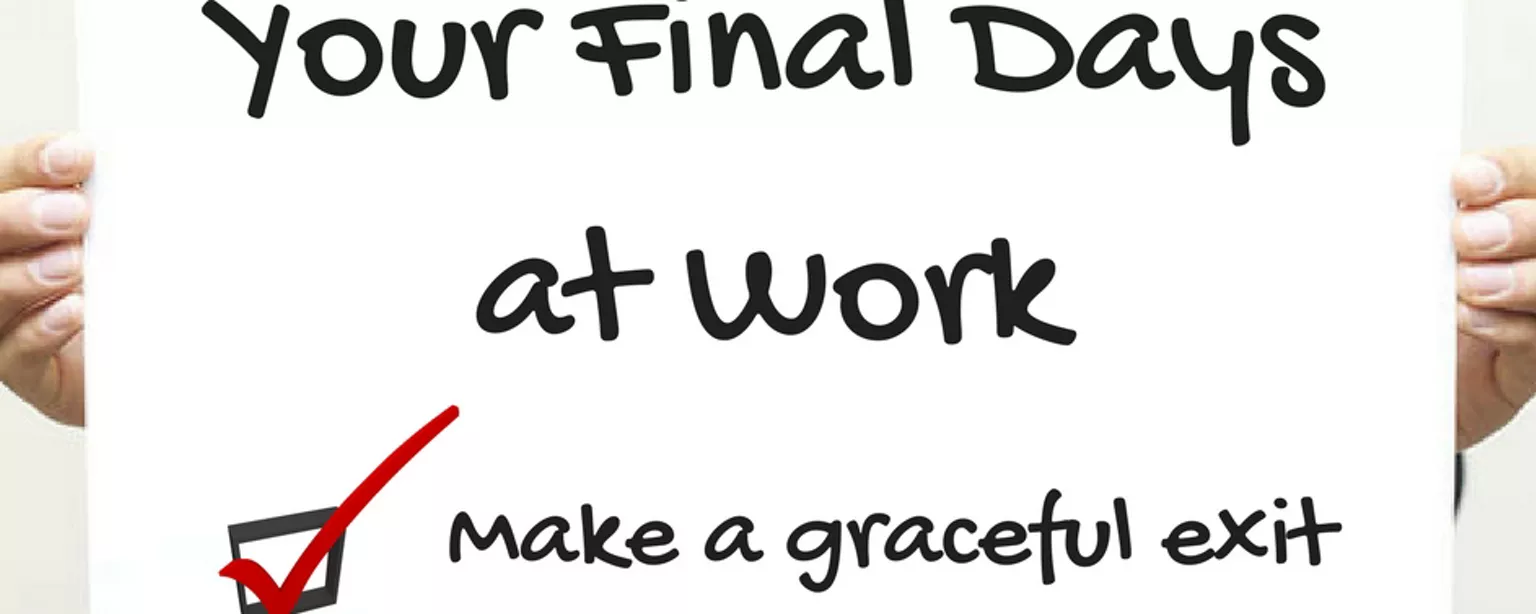Most accounting and finance professionals find jobs they love. But let’s face it. Most jobs don’t last an entire career, and the decision to quit a job can come about for any number of reasons: a better job opportunity, a move to another city or your spouse’s transfer, an unreasonable boss, a need for growth or a better salary than what you can get at your current company.
Just so you know, you’re not alone. A Robert Half survey shows more than two in five workers (44 percent) would leave their job for one with better pay. Every month, according to the Job Openings and Labor Turnover Survey from the Bureau of Labor Statistics, millions of workers voluntarily quit or are laid off or fired across the country.
The most important takeaway for how to quit a job? Go gracefully. Whether you resign from a job or you’re asked to leave, you’ll have forms to complete, exit interviews, a workspace to pack up and farewells to colleagues. The manner in which you handle your last two weeks and very last day at work may have an impact on your future career prospects.
Here are nine recommendations for making your exit with courtesy and respect, beginning at least two weeks before you want to leave:
1. Give adequate notice
It’s extremely unprofessional to quit your job without warning. Perhaps because they are afraid of confrontation, some employees leave their employers by never going back after lunch. Give your boss ample time to make plans, shift the workload and look for a replacement.
Two weeks’ notice is the standard when submitting your resignation. If you have key responsibilities or highly specialized skills, your employer will appreciate even more of a buffer for the transition. You might offer to stay on longer to complete any major projects or train a replacement.
Just in case you're unsure: Think You'll Regret Leaving a Job? 5 Questions to Ask First.
2. Inform your boss before other employees
While it’s beneficial to work with friendly accounting and finance colleagues, they are not the first people to tell that you’re leaving a job. Nor should you broadcast your decision via social media. Your supervisor should be the first person at your workplace to receive the news. And even then, it’s best to wait until you’ve submitted your resignation letter and know your final day before telling coworkers.
What’s the likelihood a manager would rehire someone who quit? A Robert Half survey shows 98 percent would welcome back a former employee who left the company on good terms.
3. Don’t be dramatic
Spectacular displays of resignations are familiar throughout pop culture. Respondents to a Robert Half survey cited some over-the-top resignations they’ve heard of, such as baking an “I quit” cake, throwing a brick through the window and creating a send-off music video. While these tactics seem cathartic, especially if the reason for them is that you dislike your job or boss, consider the long-term consequences and resist the temptation. The general rule of thumb when quitting a job: no malice, no pranks and no stunts.
Have you weighed your career choices and settled on the right path?







